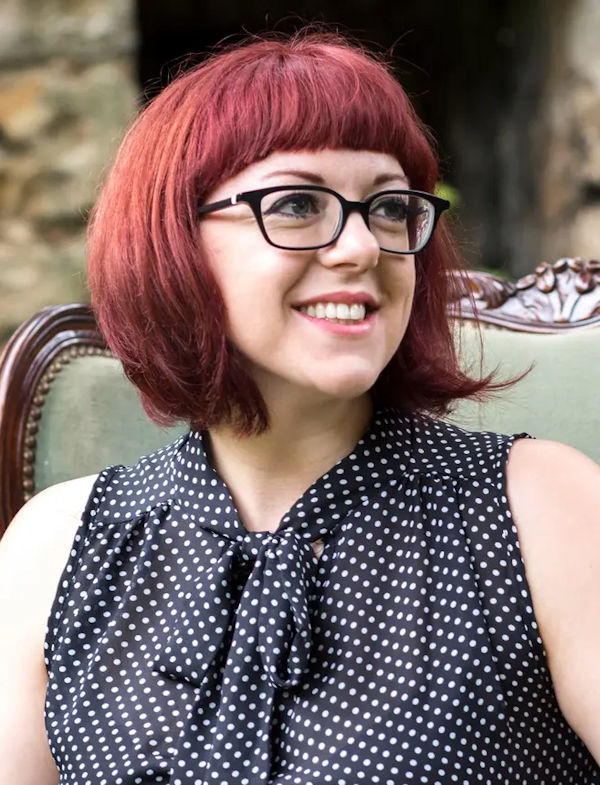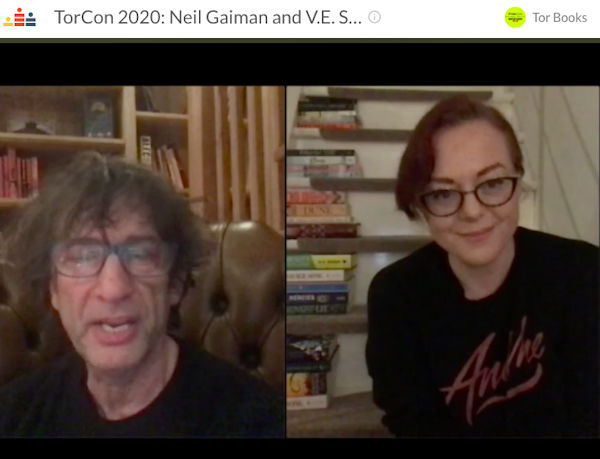Editor’s Note: This post is a wee bit late. My June got a bit crazy and this article got lost in the shuffle. Apologies to the authors and organizers for the late posting. – JI
Let’s look back for a moment. It’s the middle of June and COVID-19 is still raging across the lands, changing the way we live every single day. From hunkering down and entertaining our kids to wearing masks and calling on our inner reserves to push through one last Zoom meeting for work, it’s seriously impacting the way we do things. However, there’s always a bright spot to any dark day and even though this dark day is particularly long, the bright spots are blazing. Some families are able to spend way more time together, workplaces are shifting to teleworking (others permanently!), and people are realizing who the true heroes are, the essential workers on the front lines and behind it.
But there’s an even brighter spot I latched onto during this: virtual conferences and conversations with the far-reaching literary world. For example, Tor had a virtual conference from June 12–14 called TorCon 2020 put in on in partnership with Den of Geek, which was a bunch of panels and conversations between speculative fiction authors. It was free to watch, participants just had to pre-register to some of the conversations first.

One such conversation immediately caught my eye: V. E. Schwab and Neil Gaiman. Schwab is a favorite author of mine, so I latch onto any chance to hear her chat. I pre-registered for the talk a few weeks earlier and when Friday, June 12th came rolling around, I was so excited. It was a workday but at the time of this writing, I’m still teleworking ninety percent of my days at home, so I took my lunch late and settled in to watch the conversation unfold.
 Over 6,200 participants showed up! The streaming technology
worked okay, though there was a glitch with getting Schwab to show up at first,
but it was quickly resolved, and sometimes the stream stuttered a little, but
it wasn’t too bad. The senior of marketing from Tor came online first to give
the rundown on streaming rules and codes of conduct then the moderator from Den
of Geek hopped into the stream to introduce the authors. She hopped off when
both Schwab and Gaiman had successfully joined. The conversation between the
two unfolded from there, which I’ll gush about in a second.
Over 6,200 participants showed up! The streaming technology
worked okay, though there was a glitch with getting Schwab to show up at first,
but it was quickly resolved, and sometimes the stream stuttered a little, but
it wasn’t too bad. The senior of marketing from Tor came online first to give
the rundown on streaming rules and codes of conduct then the moderator from Den
of Geek hopped into the stream to introduce the authors. She hopped off when
both Schwab and Gaiman had successfully joined. The conversation between the
two unfolded from there, which I’ll gush about in a second.
But first, the super cool thing about this conversation! Both the Tor and the Den of Geek representatives were in America—probably on the East Coast—but Schwab was in France and Gaiman was in Scotland. And I was watching them talk to each other, streaming, in real time! With the aid of technology and because of COVID-19, six thousand participants from so many locations around the world were able to come together and hear the conversation between two amazing authors. It’s a searing and nerdy and inspirational bright light through all this COVID craziness. Even though we might not be able to come together in person quite yet, the literary world can still persevere.
It’s just…really cool and I wanted to sit with that for a little bit.
 The conversation between Schwab and Gaiman had some
gemstones that I’ll pass on here, too. They meandered through the topics,
chatting like old friends about how short stories hold a certain kind of magic
with none of the time a novel demands. Like you’re holding up the world of a
story, but only for a moment and then you can rest (unlike a novel, where
you’re holding up the world for a very long time). Gaiman and Schwab
transitioned to the topic of writing a story only when you know you’re ready to
write it, how Schwab’s next book The
Invisible Life of Addie LaRue took ten years to come into fruition and how
Gaiman’s The Graveyard Book took much
the same path. That as a writer, you’ll know when you find that missing piece
to the story, and you’ll know when you’re ready to start writing it. How plot
is just what happens, but then there’s what it means and what it’s for, the
heart of the piece. They chatted about writer’s block, how it just means you’ve
probably gone off the trajectory of the story and perhaps you should go back
and re-read the piece to see where you diverged.
The conversation between Schwab and Gaiman had some
gemstones that I’ll pass on here, too. They meandered through the topics,
chatting like old friends about how short stories hold a certain kind of magic
with none of the time a novel demands. Like you’re holding up the world of a
story, but only for a moment and then you can rest (unlike a novel, where
you’re holding up the world for a very long time). Gaiman and Schwab
transitioned to the topic of writing a story only when you know you’re ready to
write it, how Schwab’s next book The
Invisible Life of Addie LaRue took ten years to come into fruition and how
Gaiman’s The Graveyard Book took much
the same path. That as a writer, you’ll know when you find that missing piece
to the story, and you’ll know when you’re ready to start writing it. How plot
is just what happens, but then there’s what it means and what it’s for, the
heart of the piece. They chatted about writer’s block, how it just means you’ve
probably gone off the trajectory of the story and perhaps you should go back
and re-read the piece to see where you diverged.

After about 45 minutes of back-and-forth, the moderator popped back into the conversation to take questions from the audience. There were some great questions and amazingly, the chat box was really nice. (An amazing feat, as you probably know.)
It was an honest and open conversation, so insightful and inspiring, and I was left with a feeling of hope and awe at this time we’re living in right now. To paraphrase one of the last comments made, a book can give the reader an escape because they might be stuck in one room but they get to step outside that room and walk in a different world for a while. When they come back to their one room, they do so with tools and knowledge they didn’t necessarily have before. We need that escape, but we also need to come back to the world empowered to change it. Yes, COVID-19 is terrible, and the world is on fire for myriad reasons, but there is always hope for things to change, for things to get better, for us to do better. It was a lovely chat and I was ever so grateful to see it.
If you’re able to do a virtual conference, I’d highly recommend it. It’s a nice way to connect with like-minded individuals and if you think about it for a second, a wild experience, too.

